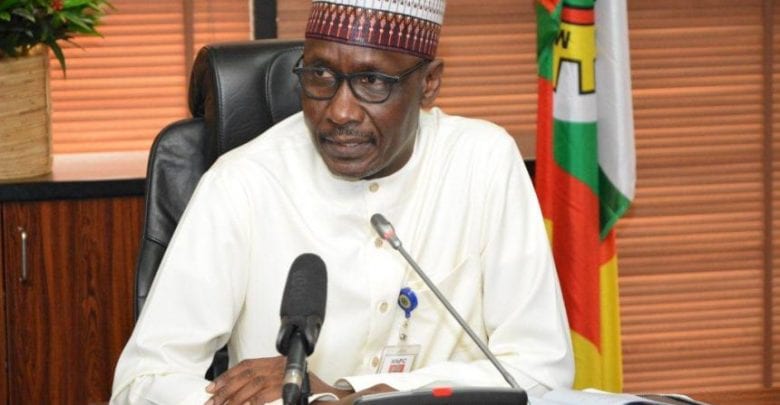
The Forum of Civil Society Organisations in Nigeria has come out in strong defence of Mele Kyari, Group Chief Executive Officer (GCEO) of the Nigerian National Petroleum Company Limited (NNPCL), amidst recent criticisms and controversies surrounding his leadership and the current fuel scarcity in the country.
In a press conference held at the Nigerian Union of Journalists (NUJ) Press Center in Abuja, Comrade Friday Maduka, Chairman of the Niger-Delta Amalgamated Supreme Concourse, and Dr Akbar Abubakar, Secretary-General of the All Nigeria Ethnic Nationalities Grand Assembly, addressed what they described as “unconscionable attacks” on Kyari.
They attributed the recent supply chain disruptions and fuel scarcity to logistical issues rather than failures in leadership.
The forum highlighted findings from their multi-disciplinary Intelligence, Investigation, Research, and Statistical Bureau (IIRSB), which pointed to a coordinated campaign of misinformation aimed at discrediting Kyari.
According to the IIRSB report, these disinformation campaigns were driven by individuals with ulterior motives, hoping to destabilize Kyari’s tenure and create opportunities for their gain.
”The findings replete with facts and figures suggest that some of the sponsors of the disinformation campaign could be located within the sour grapes horde acting out of mischief and plain malice and are even jockeying for envisaged possible placements should they succeed in the unlikely satanic endeavour of tampering with the looming efficacious, resourceful image of Mele Kyari, the chief helmsman of the NNPCL.
”For the record, distinguished gentlemen of the press, Mele Kyari in tandem with the progressive governance templates of the Progressive President Asiwaju Bola Ahmed Tinubu administration has paid his dues, transcended stereotypes and conquered reality by ramming through a transformation unprecedented in the annals of the oil industry.
”He has sacrificially given his all and all and should and must not be distracted from carrying out his prescribed constitutional functions in consonance with Financial Instructions (FI), Civil Service Rules and Regulations (CSRR) plus other consequential and relevant extant rules which undergird Civil Service operations,” the groups said.
The civil society groups lauded Kyari’s achievements under the administration of President Asiwaju Bola Ahmed Tinubu, noting significant progress in the oil sector.
They emphasized Kyari’s commitment to transparency, accountability, and integrity, which they believe has led to unprecedented milestones in the industry.
Addressing the recent fuel scarcity, the forum clarified that logistical issues and supply chain disruptions were the primary causes, dismissing claims of managerial incompetence.
They expressed confidence in Kyari’s ability to resolve these challenges, citing his track record of effective leadership and problem-solving.
Comrade Maduka and Dr Abubakar declared their readiness to submit the IIRSB’s findings to national security agencies to halt the disinformation campaigns.
They argued that the attacks not only target Kyari but also undermine the administration of President Tinubu, which has been working towards reforming the oil sector.
The civil society leaders referred to their intervention on June 2, 2024, which debunked false claims made by the Coalition Of Ethnic Nationalities Youth Leaders In Nigeria. They reiterated that the attacks were baseless and motivated by malice.
The forum reaffirmed its support for Kyari and the NNPCL’s efforts to tackle the oil sector’s challenges.
They called on all stakeholders to recognize the progress made under Kyari’s leadership and to disregard the misinformation spread by detractors.
”We wish to further clarify that our Intelligence, Investigation, Research and Statistical Bureau unveiled glitches and supply chain disruptions in respect of petroleum products distribution and the holistic determination of the Kyari-led NNPC LTD to decisively resolve all the hitherto, intractable, lingering contradictions which afflicts the distribution of petroleum products in the nation.
”This best explains that logistical issues were largely responsible for the reappearance of fuel queues in some parts of the nation,” the groups concluded.
